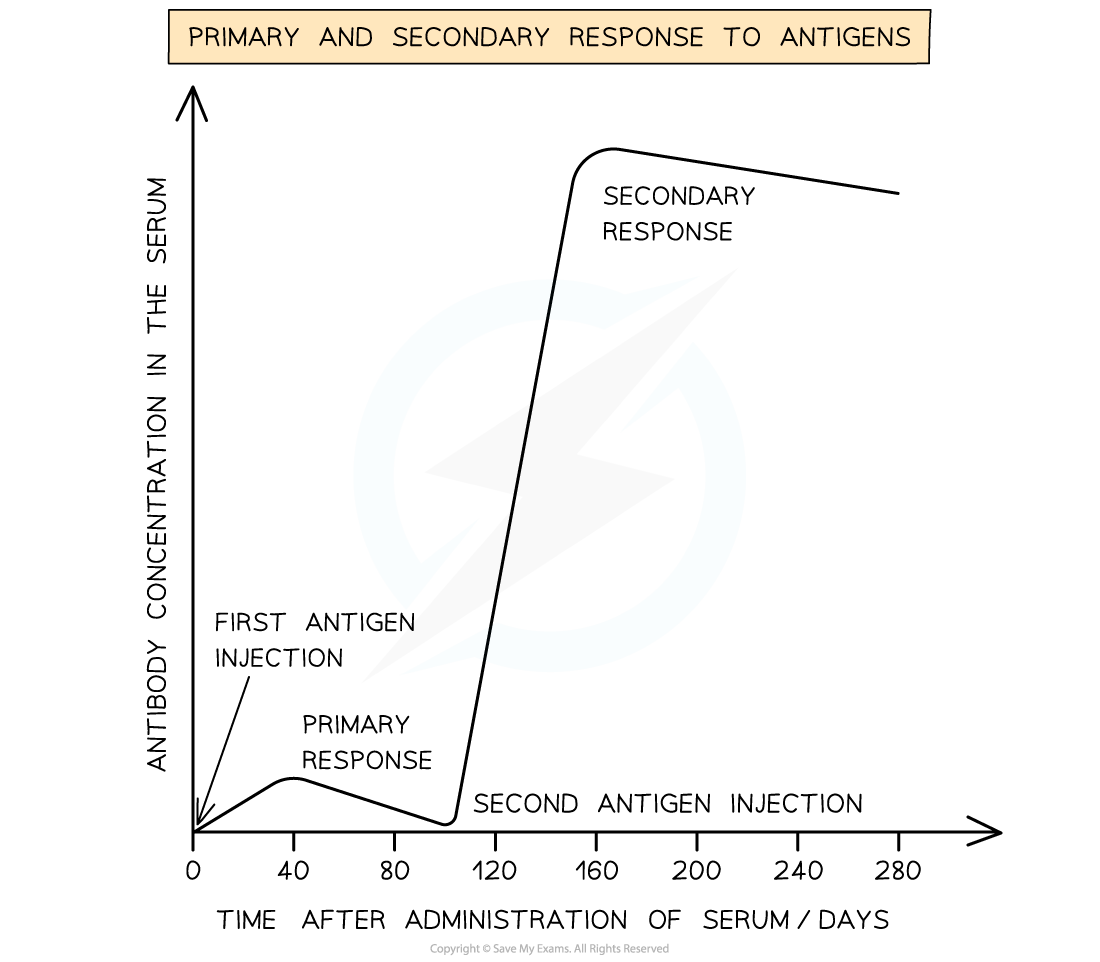Types of Immunity (Cambridge (CIE) A Level Biology): Revision Note
Exam code: 9700
Types of immunity
Active immunity
Active immunity is acquired when an antigen enters the body triggering a specific immune response (antibodies are produced)
Active immunity can be:
Naturally acquired through exposure to microbes
Artificially acquired through vaccinations
The body produces memory cells, along with plasma cells, in both types of active immunity
This gives the person long-term immunity
In active immunity, during the primary response to a pathogen (natural) or to a vaccination (artificial), the antibody concentration in the blood takes one to two weeks to increase.
If the body is invaded by the same pathogen again or by the pathogen that the person was vaccinated against then, during the secondary response, the antibody concentration in the blood:
Takes a much shorter period of time to increase
Is higher than after the vaccination or first infection

Passive immunity
Passive immunity is acquired without an immune response
Antibodies are not produced by the infected person
As the person’s immune system has not been activated, there are no memory cells that can produce antibodies in a secondary response
If a person is reinfected they would need another infusion of antibodies
Depending on the disease a person is infected with (e.g., tetanus) they may not have time to actively acquire the immunity (there is no time for active immunity to occur)
Passive immunity occurs either artificially or naturally
Artificial passive immunity occurs when:
People are given an injection / transfusion of the antibodies—in the case of tetanus this is an antitoxin
The antibodies were collected from people whose immune system had been triggered by a vaccination to produce tetanus antibodies
Natural passive immunity occurs when:
Foetuses receive antibodies across the placenta from their mothers
Babies receive the initial breast milk from mothers (the colostrum) which delivers a certain type of antibody (IgA)
Feature | Active | Passive |
|---|---|---|
Production of antibodies | Produced by the body | Not produced by the body |
Time before antibodies appear in the blood | 1-2 weeks | Immediate |
Presence of memory cells | Yes | No |
Induced naturally by: | Exposure to pathogen | Antibodies received from another organism (e.g. via the placenta during pregnancy) |
Induced artificially by: | Vaccination | Antibodies are manufactured and injected / infused into the body (e.g. monoclonal antibodies given by blood transfusion) |
Examiner Tips and Tricks
Active immunity is when the body produces the antibodies, whereas in passive immunity the body is given the antibodies.

Unlock more, it's free!
Was this revision note helpful?
